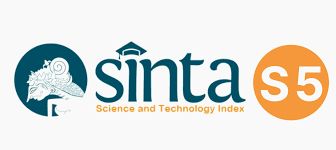Jadwal Preventive Maintainance Mesin Menggunakan Algoritma Genetik Steady State Dengan Fungsi Kecocokan Berbasis Required Reliability
Keywords:
Preventive maintainance, genetic algorithm, multiobjectiveAbstract
Preventive maintainance activities are very important for manufacturing
industries in order to maintain lifetime of their components/machines and to
improve their performances. This research determines preventive maintainance
schedules which minimize total cost and maximize reliability of
components/machines. Some methods are already developed to obtain the
schedule, exact method for example, has been used for many years. However this
method having a drawback in the optimization process, in particular is model
complexity, time consuming, and may lead to produce unfeasible solutions.
Therefore, to overcome the problems, this research use another possible method
namely Steady State Genetic Algorithm (SSGA). This research uses fitness
function that is depend on Required Reliability which is stated by the company.
In this research, SSGA is used to solve the problem of optimizationing in
determining preventive maintainace schedule. This method was implemented to
determine preventive maintainace schedule of Freeze Drying belongs to Pindad
Cooperation. In this case, SSGA involed population size of 2,000 becauseit
produces small variance solution and genetic cycle of 500 which produce
convergent values based both on cost and reliability. According to the schedule,
if the manufacturer would like to obtain machine reliability of60%, then there are
not any maintaince avctivites requred during the period of 15 months. In addition,
ifthe reliabilityof 80% required, then the company should perform replacement
action on the first month and the tenth month. The company should alse perform
maintainance activity on the fourth month with cost needed to do the actions is
Rp 784,450. This schedule produces reliability for the machine of 68.71%.












